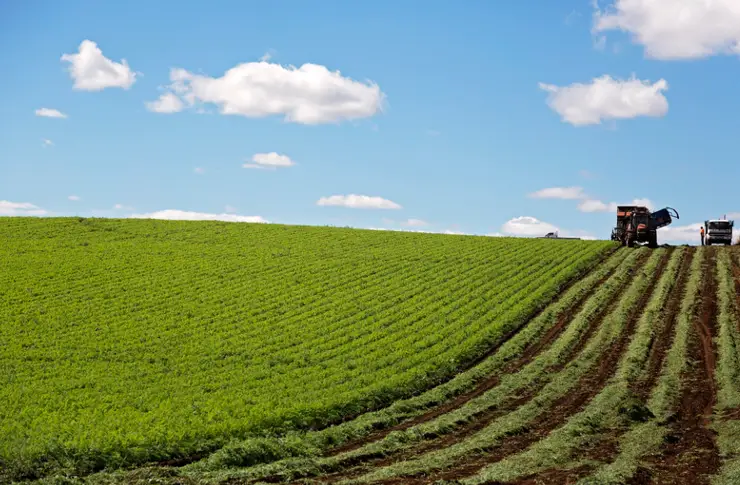First Home Buyer Guidance
Step by step help with grants, finance and floor plans, move into your first home sooner.

When purchasing a farm property, it’s crucial to examine several key aspects to ensure a wise investment. For example, confirm the legal requirements, such as zoning regulations and licenses like water usage rights. Evaluate economic and environmental considerations and review the property’s infrastructure and utility access for essential services. Pre-purchase inspections and settlement processes are equally important. Today, we’ll dive deeper into these factors to guide you toward a successful farm acquisition.
Understanding economic market conditions is essential when investing in property. In Australia, average farmland prices surged by 12.9% in 2022, highlighting the dynamic nature of the market. This underscores the importance of timing your purchase strategically to optimise value.
Additionally, consider the broader economic landscape. Rising operational expenses can put a strain on finances, making careful financial planning and resource allocation critical. It’s equally important to research property taxes, as they can have a significant impact on your overall costs and profitability.
Environmental factors are also a key consideration. For example, water access is crucial, particularly in regions prone to drought. Insufficient water resources can greatly affect crop yields and livestock production. Be sure to assess the water rights and availability associated with the property to ensure consistent access during critical growing periods.
Navigating the legal aspects of buying a farm property is critical to ensuring a seamless transaction and future compliance.
First, property rights are fundamental. Investigate any existing easements or rights of way that might restrict how you use the land. Additionally, consider whether the farm’s location and layout are suitable for natural sequence farming or the specific agricultural practices you plan to employ.
Next, review zoning regulations in your area. These local land-use rules dictate what activities are permitted, impacting everything from farming methods to infrastructure needs. Verify council approvals and zoning compliance for existing structures or future projects, such as barns or fences, to avoid potential legal issues later.
For properties exceeding 20 hectares, it’s mandatory for a licensed Stock and Station Agent to manage the transaction. This ensures all legal requirements are properly addressed.
Finally, ensure the purchase contract includes essential licenses, such as water usage rights. Lacking these licenses can lead to significant legal challenges after the sale.

Paying attention to infrastructure and utilities is just as crucial when purchasing a farm property. Reliable water access is a cornerstone of agricultural operations, so assess the quality and depth of the water table thoroughly. Different regions offer varying water sources, which can significantly impact your farm’s efficiency.
Additionally, evaluate the availability of electricity, gas, telecommunications, and other key utilities. Installation and maintenance costs can escalate quickly, making it important to ensure the property meets your needs. Take time to analyse potential monthly utility expenses to confirm they align with your operational budget.
Finally, assess the farm’s road accessibility. Year-round access, even in challenging weather conditions, is essential for the smooth transportation of goods and resources.
Clearing sales present a great opportunity to purchase essential farm equipment and livestock at potentially reduced costs. These sales typically feature machinery, tools, livestock, and other items that the previous owner no longer needs.
To maximise this opportunity, it’s important to prepare thoroughly. Research the available items beforehand to understand their condition and value, ensuring you avoid potential disputes over quality or ownership later.
Keep in mind that many clearing sales operate on a cash-only basis. Be sure to have sufficient funds ready, as alternative payment methods may not be accepted.
Finally, adopting effective auction bidding strategies can give you a competitive advantage. Establish a budget in advance, stick to it, and observe the bidding dynamics to place strategic bids at optimal times.
The settlement process is a critical step when purchasing a farm property, ensuring that all financial and legal details are carefully addressed.
To ensure a seamless transition, identify any unpaid obligations, such as property rates or utility fees, during the conveyancing process. These must be settled at the time of finalisation to prevent unexpected costs later.
Here are three essential steps to manage the settlement process effectively:
Additionally, ensure that any specific conditions outlined in the contract, like easements or water usage rights, are clearly defined and complied with before the sale is finalised.
Our Services
TPG Property Group supports Melbourne and Australia wide clients with land selection, finance, turnkey builds and long term strategy.
Step by step help with grants, finance and floor plans, move into your first home sooner.
Strategies for high growth suburbs, tax benefits and SMSF options that build wealth.
Low deposit options and competitive loans, with expert lender support and faster approvals.
Fixed price turnkey homes in Melbourne and Australia, fully finished and ready to move in.
Secure land in Melbourne growth areas, matched to your budget and lifestyle goals.
Stay in the suburb you love and upgrade to a modern, efficient new home.
Quality multi dwelling projects for lifestyle appeal and strong rental returns.
We manage design, permits, construction and handover, on time and on budget.
Trusted partners streamline contracts, settlements and loan approvals.
Data led suburb insights and feasibility reviews for smarter decisions.
Plan, acquire and manage a long term portfolio that grows with you.
All contents published on this website or otherwise made available by TPG Property Group Pty Ltd to you is general information only and is intended to help you in understanding the products and services offered by TPG Property Group Pty Ltd. The information does not take into considerations of any particular investment objectives or financial situation of any potential reader. It does not constitute, and should not be relied on as, financial, investment, legal or any other professional advice or recommendations both expressed or implied. It should not be used as an invitation to take up any investments or investment services. You are advised to do your own due diligence when it comes to making financial and investment decisions and should use caution and seek the advice of qualified professionals such as accountant, lawyer, or other professional advisors before acting on this or any information. TPG Property Group Pty Ltd, its employees or contractors do not represent or guarantee that the information is accurate or free from errors or omissions and therefore provide no warranties or guarantees. You may not consider any examples, documents, or other content on the website or otherwise provided by us to be the equivalent of professional advice. Nothing contained on the website or in materials available for download on the website provides professional advice in any way. TPG Property Group Pty Ltd disclaims any and all duty of care and liability and assumes no responsibility for and you will indemnify TPG Property Group Pty Ltd against any losses or damages resulting from your use of any link, information, or opportunity contained within the website or any information within it.